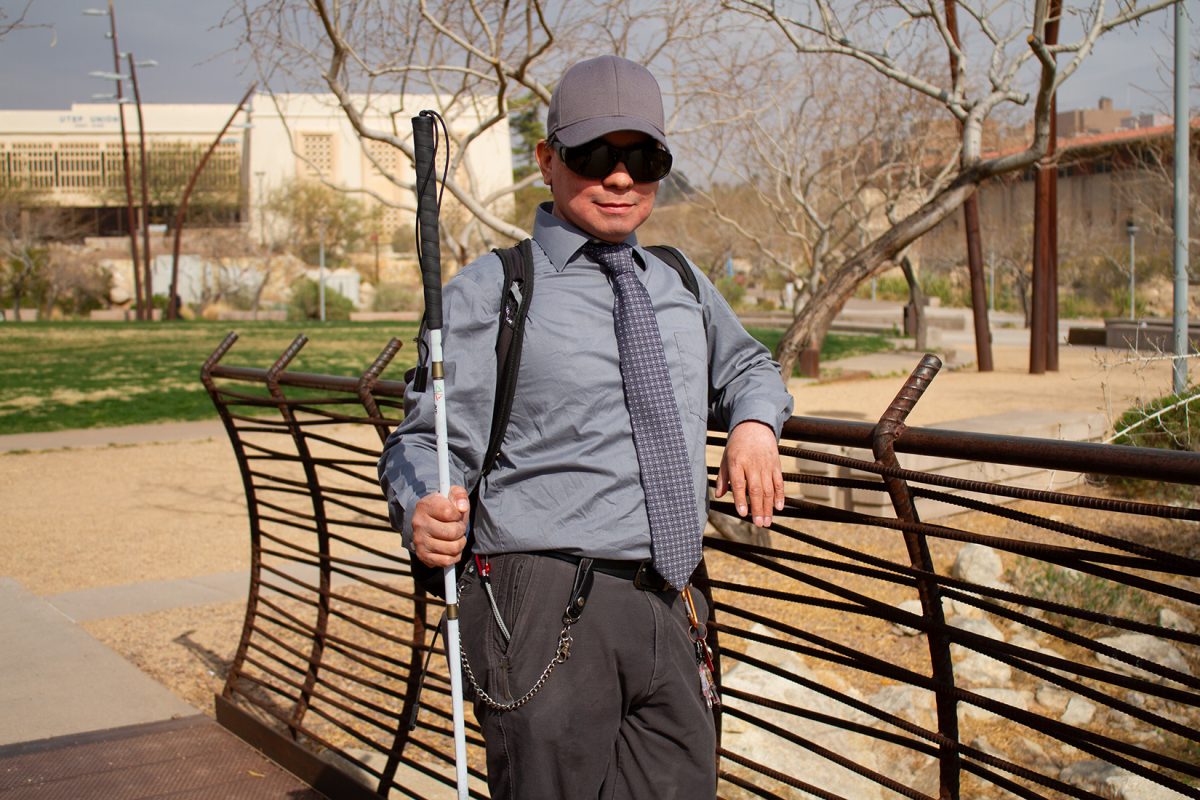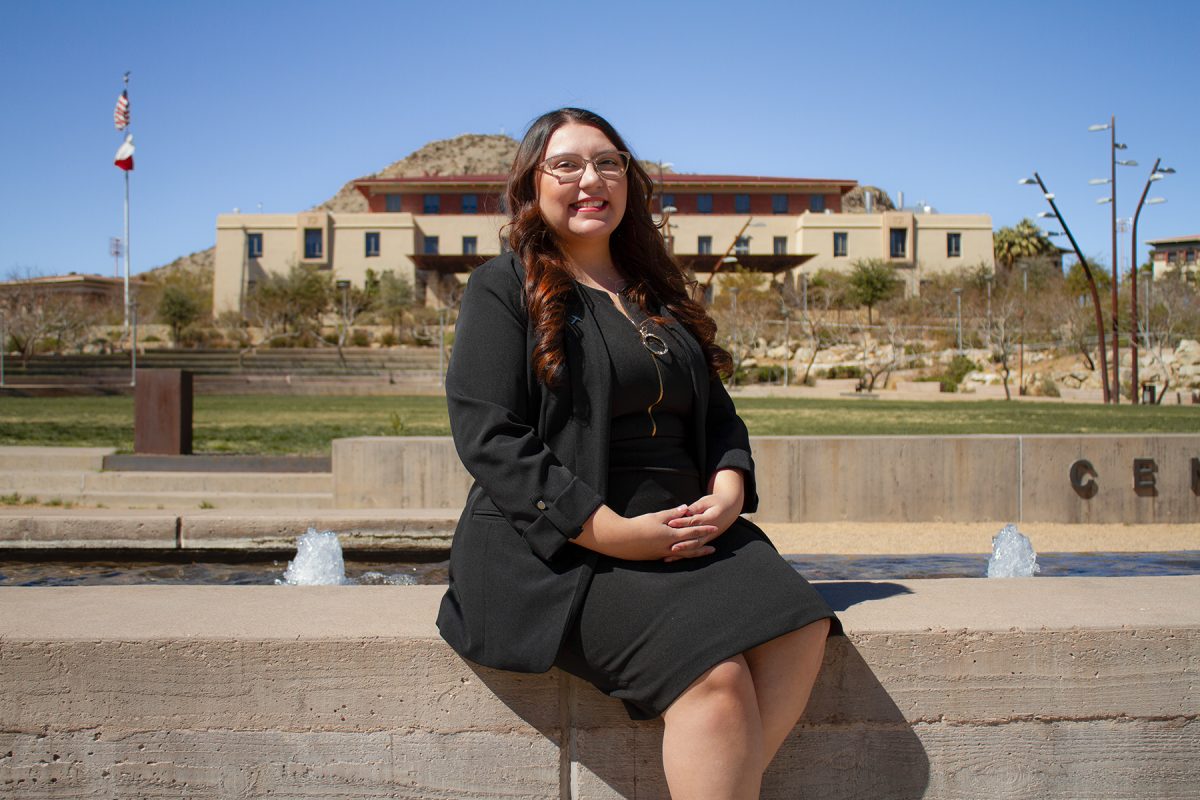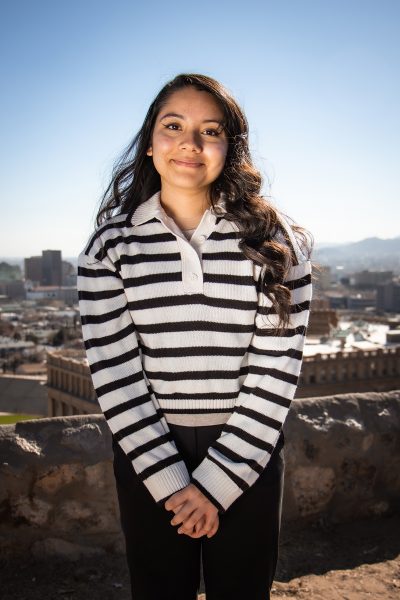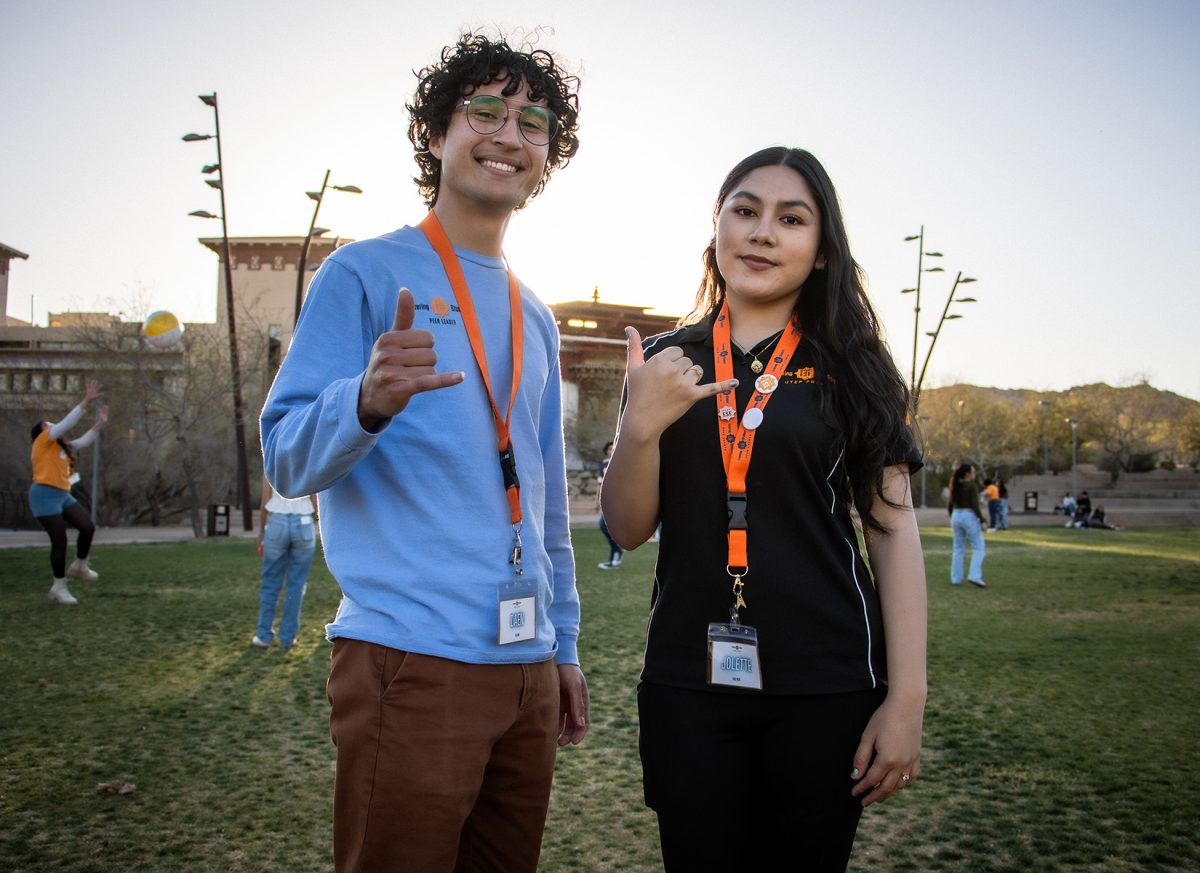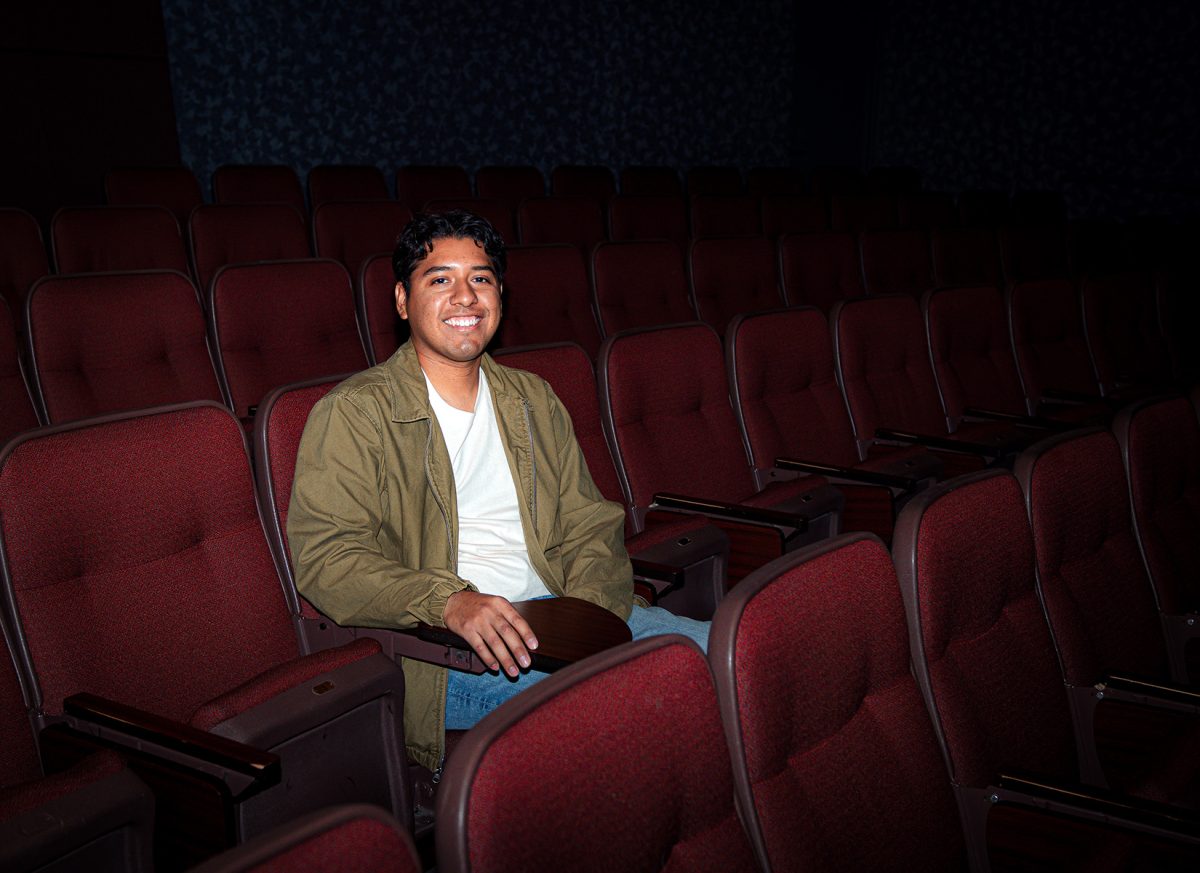At first, a study abroad trip to Spain seemed unlikely to graduate student Mikaela Reyes as she was diagnosed with Lupus at 16-years-old. Lupus is a disease where her immune system attacks organs and tissue causing inflammation. Because of this, Reyes sometimes needs a wheelchair to travel and must have frequent IV infusions of medicine. She says the infusions, wheelchair and medication all seemed to stand in her way of studying abroad. However, with a great support system at UTEP, and her husband’s help, Reyes was able to defy the odds.
While most students at UTEP live normal, healthy lives, there is also a percentage of students who live every single day with a disability. Whether visually impaired, deaf, or dealing with any other disability that people may not know of, students with disabilities at UTEP say they can overcome their challenges with support from their families and UTEP.
Reyes says she was hesitant to join graduate school because of how daunting the workload is. She says with understanding professors and her determination to finish school, she is graduating this spring with a masters in speech language pathology.
“I’ve had shoulder replacements, hip replacements and a knee replacement all during both my undergraduate and graduate school, luckily the CASS program has been very helpful during those experiences that I’ve had, especially my professors (have been understanding),” Reyes said. “I was kind of scared to join the graduate school because it is very challenging and taxing on the body, but I’ve had some pretty understanding professors, so much so that I was actually able to go to Spain.”
UTEP’s Center for Accommodation and Support Services (CASS) program is aimed to help students with disabilities and anyone throughout their academic career. Their services include note-takers, testing scribes and reformatting textbooks and documents if needed.
Jonathan Vasquez, another UTEP student who wants to remind people that the word “disability” does not mean impossible. Vasquez has been visually impaired since he was in elementary school. Throughout his education, he says he was regarded as a bright student. He says when entering college, the work became challenging at times and his determination to pass made him feel like he was a hard-working student.
“I have not failed a single class, no matter how hard it was, no matter how low the odds are of me passing, I always find a way to pass my classes,” Vasquez said. “Sometimes A’s B’s C’s, but I always pass no lower than a C.”
One of the things that helped Vasquez when coming in and out of hospitals was reading.
“The only reason why I was able to do well in school was because I read a lot,” Vasquez said. “Since I was seven going on eight, I was always sick and for over ten years, I was always in the hospital or in different research or clinical institutes. Because of my isolation there, my family and friends, would bring me nothing but books, and I devoured every single book you can imagine.”
Vasquez is currently in his junior year of college, and after graduation he hopes to become a fiction writer or therapist.
UTEP is here to emphasize that students with disabilities are not alone. Whether through the CASS program, or with professor support, students with disabilities can have a successful experience in college. Reyes wants to remind incoming students with disabilities that they should not fear their disability.
“(Do not) be afraid you have a disability, do not let that hold you back from venturing out and trying different organizations,” Reyes said. “Because although it is kind of scary to disclose you have a disability, a lot of the times UTEP staff will accommodate you, I would defiantly reach out to the CASS office because they will help you get through your academic journey.”
For incoming students with disabilities or anyone, the UTEP CASS department can be reached out to at [email protected]
Sofia Sierra is the web and copy editor and may be reached at [email protected]


